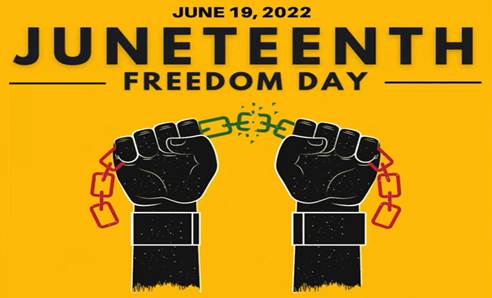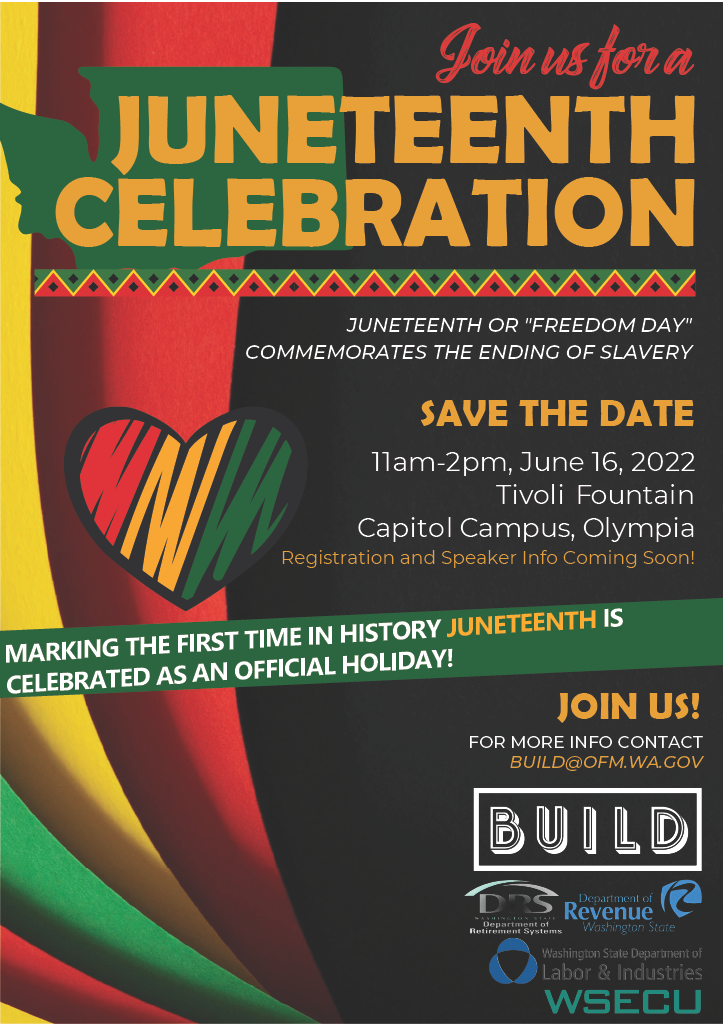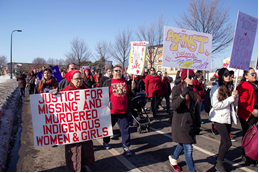|
The following address to Washington State Health Care Authority (HCA) employees was reproduced with permission from HCA. Dear HCA team,
Today, the U.S. Supreme Court has overruled Roe v. Wade, ending constitutional protection for abortion access. This is via a case called Dobbs v. Jackson Women’s Health Organization. We will likely have customers who are fearful or confused about what this ruling means for them and their families. We also may very well see individuals coming to Washington from other states to seek abortion services. It is very important that each of us as HCA employees understands and communicates the facts about coverage for abortion services in Apple Health (Medicaid), Public Employees Benefits Board (PEBB), and School Employees Benefits Board (SEBB) programs. Abortion remains legal and covered by health care insurance in Washington State. That includes coverage purchased by HCA.
If you don't qualify for Apple Health (because you are a resident of another state) you may qualify for the Northwest Abortion Access fund https://doh.wa.gov/you-and-your-family/sexual-and-reproductive-health/abortion
Finally, I want to acknowledge that this court decision will bring up strong emotions for many of us. For me, as a nurse, I believe access to comprehensive health care services, including abortion care, is a health equity issue and I am grateful abortion remains legal in our state. Some may have personal experiences that bring up emotions today. And for others, there may be religious or other beliefs that guide their reaction. If you need any support navigating this issue, the Employee Assistance Program is available with free and confidential services. As always, I expect we are all kind, compassionate, and professional in any conversations we have on this topic with our coworkers. I hope you have a restful and healthy weekend. Sue “Juneteenth has never been a celebration of victory or an acceptance of the way things are. It’s a celebration of progress. It’s an affirmation that despite the most painful parts of our history, change is possible—and there is still so much work to do.” — Barack Obama Juneteenth, also known as Freedom Day, serves as a day to reflect on our journey to freedom for Black people in America. As Washington State, along with the rest of the United States of America, seeks to celebrate Juneteenth as an official holiday, our community reflects on our history and the significance of Juneteenth in this country. Many Americans are unaware that enslavement of our people did not once the Emancipation Proclamation was signed by President Abraham Lincoln in 1863. It ended two years later in 1865, when more than 2,000 troops arrived in Galveston Bay Texas to enforce the freedom that belonged to black people. The impact of delayed action from a promise that was given and not fulfilled for 2 years is an all too familiar feeling. Post-emancipation, known as Reconstruction was an era consistently references as a period great hope yet struggle, and uncertainty for Black people in America. As the reality of black people being free started to settle in, we saw racism and oppression show up in a new form. Even though black people were no longer enslaved, they were faced with issues of Black Codes and Jim Crow, known as strict laws on how to treat black people. They were put in place to deprive and strip the fundamental rights and economic growth for the Black community. In addition to the corrupt laws in place, Black people were victims of horrendous acts by white supremacy believers, whose sole purpose was to terrorize the newly freed Black people anybody or entity that supported them. America has made progress, where the Black people are concerned but we as whole still suffer from the evil that America was built upon. It is systemic and must be purged. Reflection Juneteenth is not just a moment in American history, where we only celebrate the freedom for black people. It serves as a reminder of resilience and the determination that black people continuously show. We’ve overcome, we’ve endured, we do not break. However, we deserve rest, comfort, and peace. This is a moment in history, that highlights the long journey we have traveled. A moment in history, where our community can revive their hope and strength to build a better future for not only ourselves, but those that come after. So, let us not just a celebrate on Juneteenth, let us be inspired to act and commit to the effort of establishing a world where equality and inclusion does exist. Check out photos, live streams, and news links from Washington State Juneteenth event held on June 16th, 2022. Washington State Juneteenth Celebration Photos - BUILD, Washington State Juneteenth Celebration Livestream- TVW BUILD Facebook Livestream KING 5 News Photos taken by Gary Lott Compiled by Shauna James, Washington State Health Care Authority. What is Juneteenth?
Juneteenth Significance “Juneteenth” (June Nineteenth) commemorates freedom for African Americans, and reminds us of the promises of freedom, equity, and equitable opportunity which are at the core of the American Dream. The historical legacy of Juneteenth is a good mirror of how freedom and justice in our nation has always been “delayed” for Black people. For decades waves of lynching, imprisonment, and Jim Crow laws took root. This resulted in a disproportionate impact of discriminatory policies, disparities, and a lack of economic opportunity and investment. While some progress has been made, considerable barriers still exist towards fuller equity. Thus, the importance of the recognition and observance of Juneteenth to demonstrate our commitment to diversity, equity, inclusion, and belonging The Historical Legacy of Juneteenth (June Nineteenth) 1502: The first known Transatlantic Slave Trade voyage - At least 10 million Black people were forcibly transported from Africa and sold into slavery. January 1, 1863: President Abraham Lincoln issues the Emancipation Proclamation, but some Confederate states refused to enforce this law. June 19, 1865: General Gordon Granger arrives in Galveston, Texas and announces that more than 250,000 enslaved black people were free through the Emancipation Proclamation). December 1865: The 13th Amendment to the U.S. Constitution is passed, freeing all enslaved people & abolishing slavery in the U.S. June 7, 1979: Representative Al Edwards introduces a bill declaring “Juneteenth” a state holiday - Texas was the first state to recognize the observance. June 17, 2021: President Joe Biden establishes Juneteenth, the date commemorating the end of slavery in the U.S, as a federal holiday. Key points of Governor Inslee’s Juneteenth Proclamation In his all-state communication, Governor Jay Inslee said recent events caused him to examine how persistent racism continues to impact people of color in the State of Washington, but worldwide. The proclamation is aimed at recognizing contributions of African Americans to our state and country and as a chance to reflect on progress till to be made to endure equal access and opportunity and for self-improvement and planning for a more equitable future. Juneteenth commemorates African American freedom, acknowledges the resilience and determination that African Americans have shown. Since its origin in 1865 in Galveston, Texas the observance of June 19 (Juneteenth) as the African-American Emancipation Day has spread across the US and worldwide. In his communication about the proclamation, he made a commitment to making Washington a more inclusive state and our workplace an environment where every employee is encouraged to bring their true and authentic selves to work. The proclamation makes Juneteenth a legal holiday. He urged ALL citizens to learn about the celebration and its significance in American History and the heritage of our nation. The Juneteenth Flag
On June 19th you might start seeing another red, white, and blue flag flying over our state. That banner with a star bursting in the middle is the Juneteenth Flag, a symbol of the end of slavery in the United States. The flag was created in 1997 by Ben Haith, founder of the National Juneteenth Celebration Foundation (NJCF). According to Haith the design was a deliberate process. Here’s what each element of the flag represents:
CALL FOR VOLUNTEERS
The 2022 Statewide DEI Summit Planning Committee needs your help to host a successful event. We know that many employees across the state are passionate about the summit and would like to contribute. We specifically need your help in moderating DEI Summit sessions. As a moderator, you will play an important role in ensuring that the conference is a success by attending various sessions, and helping the presenters and participants have a great experience. Qualifications
“On May 25, Minneapolis police officers arrested George Floyd, a 46-year-old black man, after a convenience store employee called 911 and told the police that Mr. Floyd had bought cigarettes with a counterfeit $20 bill. Seventeen minutes after the first squad car arrived at the scene, Mr. Floyd was unconscious and pinned beneath three police officers, showing no signs of life.” – New York Times.
Today we reflect on the criminal actions conducted by law enforcement that caused the passing of George Floyd. The excerpt taken from the report highlights the sad, brutal, and all too familiar feeling of black lives being taken in this country. Let us remember that the George Floyd tragedy is not a singular moment in American history, but his death does represent the continuous brazen actions that have led to so many Black lives being taken. Unjust actions that were taken based on the color of their skin. The Washington State DEI Summit is June 7, 14, 21, and 28. This event is virtual. This year's theme this: Acknowledging Our Past, Transforming Our Future Washington State 2022 DEI Summit: Tuesdays in June: 9 a.m. – 5 p.m. Registration for the upcoming, annual Diversity Equity and Inclusion (DEI) Summit is currently available. This year’s virtual DEI Summit registration is free and open to all state agency employees. We encourage you to join us in this meaningful development opportunity, which was carefully planned to enrich our collective understanding and awareness through a wealth of DEI- related discussions and activities. Registration and summit details: https://ofm.wa.gov/DEIsummit Interviews about the Summit moderated by BUILD's very own, Sharon Armstrong! Check out more interviews! Juneteenth is a state holiday!
Watch this space for more info as it becomes available. This event also serves as BUILD's June General Membership Meeting. May 5 is the National Day of Awareness for Missing and Murdered Indigenous Women, Girls, and Two Spirit People. To learn more on how you can take action, you are invited to visit:
Tai Simpson’s essay in Cosmopolitan on the MMIW Crisis Morning Star Gali’s podcast interview with Alicia Garza on Indigenous resistance. Women, Interagency Committee of State Employed (ICSEW) has teamed up with Amy Leneker to sponsor a few events throughout the year and wants to share these opportunities for learning and development with BUILD! These events are open to all but registration for each event will be capped at 950 participants so register as soon as possible to reserve a seat. Attached is the flyer. Find more information on Amy's website.
|
AuthorSOur blog includes but is not limited to events, insights, and highlights to augment basic education. Archives
July 2024
|
||||||












 RSS Feed
RSS Feed